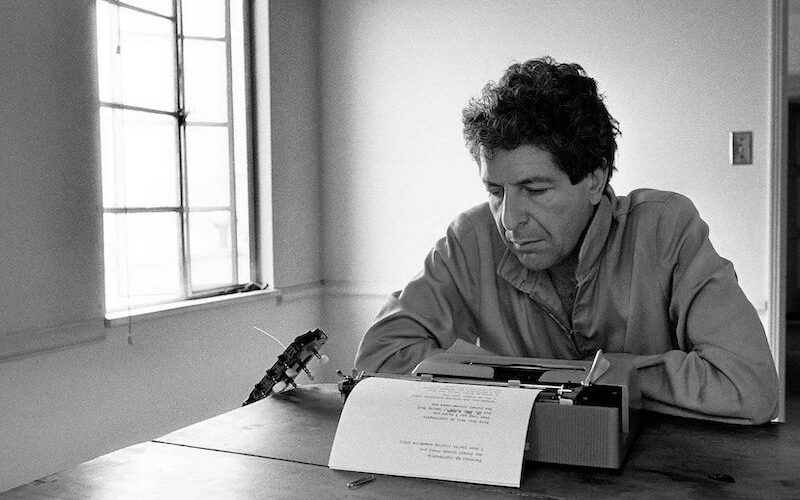Though the Buckley version remains controversial among certain diehard critics for these reasons, Jeff’s spin did lift “Hallelujah” from its origins in the corner of the folketeria to an anthem befitting the pop kid table.
Cut to today, where you can put this song on at the end of the night and create a communal spectacle reliable as any since “Tiny Dancer.” Though as with that song, I bet you can’t say in a sentence what the lyrics are “about.”
In a statement decrying its “blasphemous” ill-use by Trump, Rufus Wainwright tried. He called the song an “ode to tolerance…dedicated to peace, love and acceptance of the truth.” Lovely words, if puzzling.
Because listening to the dominant versions back to back, this fan wondered if “Hallelujah” is plausibly an ode. To anything in particular.
*
In interviews, Cohen occasionally framed the song as a “joyous” exercise, celebrating a newfound faith. But just as often he played the baffled king composer.
The lyrics resist easy interpretation. One verse is about sexual communion. Another laments the loss of same. Both Bathsheba and King David make appearances. And as far as tolerance goes, where is the benediction in a lyric like, “all I’ve ever learned from love/ Is how to shoot somebody who outdrew you”?
Some fans—like the artist Brandi Carlile—associate the song with a literal faith. Others insist on abstraction. When Buckley introduced the tune to Berlin audiences in 1995, he downplayed its religious aspect, saying:
“… it’s not from the Bible. It’s not from angels. Not from preachers who are chaste and understanding of nothing that is human in this world. It’s for people who are lovers. It’s for people who have been lovers.”
Fast forward a decade, and we find even more mutability.
In 2001, “Hallelujah” serves for montage accompaniment to an ogre’s dark night of the soul.
In 2008, “Hallelujah” is comfortably conscripted into the Christmas song canon.
And since then, Michael Bolton, Andrea Bocelli, Bon Jovi, Bono, Tangerine Dream and Kate McKinnon-in-Hillary-Clinton-cosplay have all taken earnest swings. Some of those covers are up-lifting. Some are plaintive. Some are holy. And some are just plain weird.
And while we can’t know what the late Cohen would say about his song’s latest co-option—though of course we can guess—we do have a sense of what he made of the covers, in general. In a 2009 interview with CBC Radio, Cohen expressed bemusement at “Hallelujah”’s stickiness.
“I think it’s a good song, but I think too many people sing it,” he said.
*
What does it mean, given all this, to blaspheme “Hallelujah”?
Given, too—an artist with principles and copyrights has the prerogative to restrict usage of their songs. And hey, I’m all for the petty cease and desist wars. Especially in this unfortunate timeline where celebrity endorsements tend to move the political needle more than policy commitments.
Given, too, that a song so beautiful does just feel wrong in the hips of a xenophobic lunatic with nothing loving or curious about his agenda.
But all the same? It may be that “Hallelujah” is too slippery to classify. The sheer mass of covers has brought us no closer to situating the song in a particular message, or tradition.
Lyrically-speaking, love and sex and death and faith are not exactly tolerant concepts. They are not peaceful. If the song must sit under a vibe umbrella, abject may be the best-fitting descriptor. Of the speaker, at least.
And in this way—unlike, I believe, either of our two dominant political parties—”Hallelujah” sings to a truly big tent.
